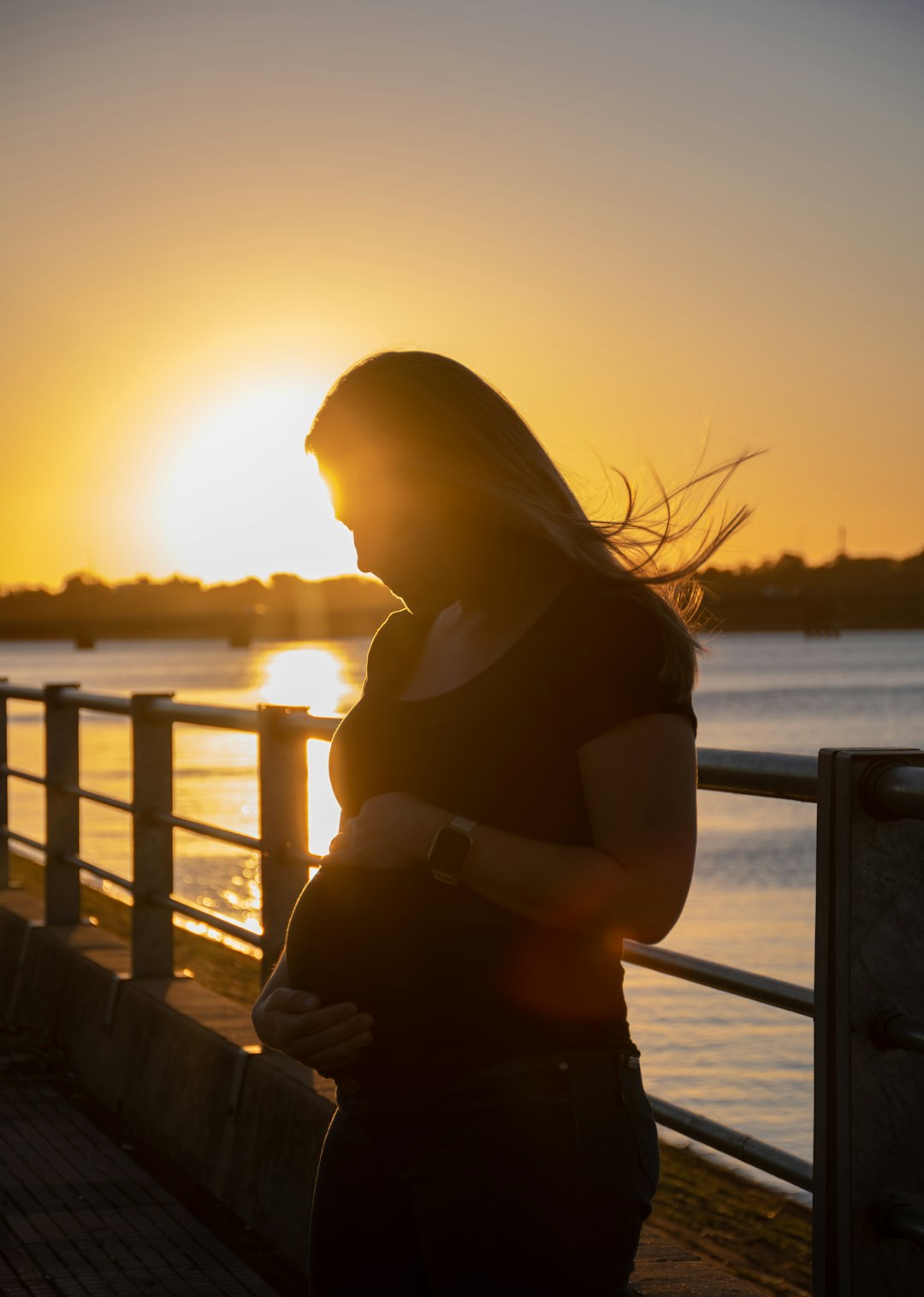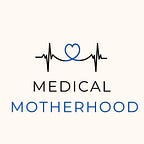“Some like it hot, some like it cold, Some like it in the pot, nine days old.” — nursery rhyme

Across the world this summer, record-setting temperatures could mean poor outcomes for pregnant women and their babies.
As climate change continues, longer, hotter and more frequent heat waves could lead to a rise in Neonatal Intensive Care Unit stays and possibly even lifelong health conditions.
A study in the International Journal of Environmental Research and Public Health said as much in 2017: “We are likely to see an increase in preterm birth, a decrease in birth weight, and an increase in stillbirth rates,” the study reads. “After birth, neonates may be susceptible to heat-related morbidity and mortality, though additional research is required.”
The researchers also noted that for some reason pregnancy had not been considered a risk factor in public health advisories on heat waves before.
“…when considering the exaggerated impacts of heat, pregnant women must also be included as an at-risk class,” they recommended.
California researchers also looked into this question by comparing rates of early delivery with exposure to heat the week before birth.
“We found a consistent pattern: exposure to extreme heat does increase risk,” said first author Sindana Ilango, a PhD student in the Joint Doctoral Program in Public Health at UC San Diego and San Diego State University in this 2020 press release. “And, importantly, we found that this was true for several definitions of ‘heatwave.’”
Having birthed my twins three months premature during the summertime, I wondered what this meant in areas like mine. Here in the Pacific Northwest, heat waves are few and far between — or at least they used to be. As a result, about a third of households here in Portland do not have home cooling systems. In 2021, however, we had our highest-ever recorded temperature of 116 degrees. Those days of extreme heat last summer killed 72 people in Multnomah County alone.
As a weeks-long stretch of abnormally high temperatures barreled down the forecast here — and seemingly across the entire Northern Hemisphere — I wondered what my local children’s hospital thought about the risks to pregnancies.
“There is growing evidence that climate change and extreme ambient heat is associated with a number of adverse pregnancy outcomes including low birth weight, prematurity and birth defects,” Oregon Health & Science University spokeswoman Nicole Rideout said in a statement. But she added a huge caveat: “there [are] large gaps in our knowledge base that prevent us from concluding that extreme temps cause low birth weight or preterm delivery.”
What about heat causing an increase in disabilities? “There is data that supports the idea that extreme heat increased risk of birth defects – mostly from studies of fever in pregnancy,” Rideout wrote.
Looks to me like — once again — issues that could be of paramount importance to pregnant women and children remain unstudied even though the evidence we do have suggests that this could be a really, really big deal.
In an increasingly warming planet, what’s a pregnant body to do to avoid this potential risk?
Here are some tips for staying cool, with or without A/C:
Call 2-1-1 to look for cooling centers in your area if you don’t have a home cooling system
Rig up a cheap but effective cooling system with a fan and some ice.
Stay well hydrated — pregnant people need tons of water, even if it feels annoying to pee all the time
Limit sun exposure with shortened outings and proper clothing like wide-brimmed hats
Recognize the signs of preterm labor and call your doctor or go in to be checked out if you experience them
Affirm to yourself that — especially during a heat wave — it’s OK not to do that baby room project right now or to not hit your exercise goal for the day. YOU ARE GROWING A WHOLE HUMAN. That is already enough accomplishment for one day. Chill!
Medical Motherhood’s news round up
Snippets of news and opinion from outlets around the world. Click the links for the full story.
• From Business Insider: “A mom of a disabled child receives $5,000 a month through an Oregon paid caregiver program — but she's scared of what will happen when the payments stop this year”
In Silverton, Oregon, Emily and her husband, Michael, take care of their 6-year-old daughter, Juniper, who has multiple disabilities and complex chronic illnesses. Juniper requires specialized, round-the-clock care, which has impacted both parents' ability to work outside the home.
Juniper is predominantly G-tube fed, which means a tube is inserted directly into her stomach to deliver food and nutrients. Additionally, Emily tells Insider, Juniper sometimes has seizures from a common cold or flu that last anywhere from 30 minutes to two hours. The couple's last names have been withheld to protect their privacy.
Because Juniper is immunocompromised, the family have been isolating and taking extra precautions even before the COVID-19 pandemic started. "My spouse and I gave up our careers to care for her," Emily tells Insider. "As an educator and social service provider, I would bring home everything — the flu, respiratory illnesses, and other illnesses that would cause really severe effects that able-bodied kids are able to fight off."
[…]Now, through [a] Medicaid program, the family receive[s] $5,000 a month for Juniper's full-time care. The ODDS office says this temporary program will end once the federal public health emergency expires, which is now scheduled to end on October 13, 2022 (it was previously set to expire in July). Unless the public health emergency is extended, the family will stop receiving monthly payments on October 13.
• From Today: “Moms want stillbirths to be covered by paid family leave”
“A mother buries their child that they carry nine months — when they go through all the physical aspects of birth and undergoing all the postpartum horrific symptoms that every other female goes through — and now you’re telling me that because my baby didn’t live I’m not entitled to the benefits?” [New York resident Cassidy] Crough said. “(It) was an emotional slap in the face.”
But Crough is hoping that her experience will spark a change and encourage the state to cover paid leave for parents of stillborn babies.
“It should be changed to ‘postpartum leave’ because that will encompass everyone that gives birth to a child. If you birth a child, whether it’s C-section or vaginal, you should be getting paid family leave because your body is undergoing a trauma,” she said. “It’s quite frankly a medical concern to have women returning to work before at least six weeks.”
• From President Joseph R. Biden: “Proclamation on the Anniversary Of The Americans With Disabilities Act”
On July 26, 1990, with the signing into law of the Americans with Disabilities Act (ADA), our Nation created the world’s first comprehensive declaration of equality for people with disabilities. Since that time, this landmark legislation has been a driving force in moving America closer to the promise of equal opportunity, full participation, independent living, and economic self-sufficiency for the 61 million individuals with disabilities in our country. The ADA prohibits disability discrimination by State and local governments; provides standards for access to places of public accommodation; protects people with disabilities from discrimination in the workplace; and ensures equal access to health care, social services, transportation, and telecommunications. But even more than that, it enshrines the idea — central to the spirit of our Nation — that all of us are deserving of equal dignity, respect, and opportunity.
Medical Motherhood is a weekly newsletter giving those raising disabled children the news and information they need to navigate complex systems. Get it delivered to your inbox each Sunday morning or give a gift subscription. Subscriptions are free, with optional tiers of support. Thank you to our paid subscribers!
Follow Medical Motherhood on Facebook, Twitter, TikTok, Spotify, Apple Podcasts, or Instagram or, visit the Medical Motherhood merchandise store to get a T-shirt or mug proclaiming your status as a “medical mama” or “medical papa.”
Do you have a question about raising disabled kids that no one seems to be able to answer? Ask me and it may become a future issue.












